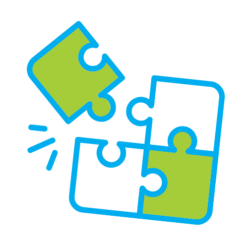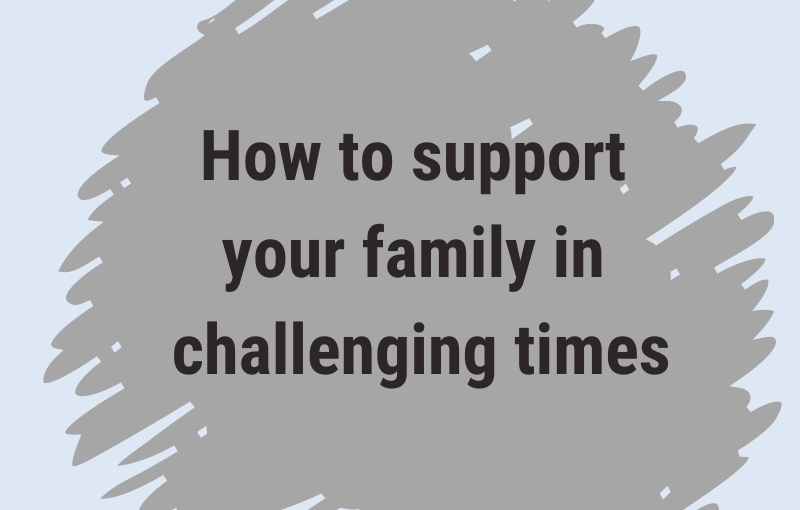Today, I want to continue to tell you the background story of the Radical Paperwork Optimisation approach.
In another article, I focused on the benefits that having a central collection point for all important paperwork – the Very Important Paperwork Directory – brings into our daily lives.
Now, I want to discuss the benefits that such an organised directory offers to our family – in circumstances that we don’t want but that we can’t avoid with certainty.
None of us knows if and when a serious illness or even death might happen to us, in which case our spouse or another family member will have to sort out our personal affairs.
A properly prepared and organised VIP Directory (Very Important Paperwork Directory) will help them manage this task in a challenging and overwhelming situation.
A little personal case study: Why and how I want to support my family – if and when something serious happens to me.
Fifteen years ago, my father-in-law passed away unexpectedly.
We flew from Hong Kong to Germany to arrange the funeral, and after that, I stayed two weeks longer to support my mother-in-law. And to sort out the paperwork she didn’t know anything about because her husband had always taken care of it.
When I started going through the papers on his desk and in the filing cabinets, I quickly realised how difficult – or even impossible – it is to completely understand another person’s organising system if this person is no longer around to explain it to us.
It took me a while to at least broadly understand how my father-in-law had organised and filed things like bank accounts and statements, insurance policies, personal ID documents, tax and medical records, invoices, contact details, etc.
As I could no longer ask him, I can only hope that I finally managed to sort things out the way he would have it done.
One thing was easier for me to do than it would have been for him: It was definitely easier for me to declutter a lot of papers because I was not as emotionally attached to the information they contained as he would have probably been.
Finally, I compiled all the personal information that was relevant to my mother-in-law in ONE binder.
Five years later, when we helped her downsize into a small apartment, she still had this one folder, which still contained all the information she needed to manage her life.
I had another and different experience six years ago when my mother passed away, also unexpectedly.
My four sisters and I cleared my mother’s house and belongings together. A very tough job. And very emotional, of course.
However, sorting my mother’s paperwork and arranging what needed to be done with it was not difficult.
My mother was a very organised person, and she – although she hated paperwork – had kept all her documents and important papers well sorted in one area of her home.
However, my mother left us one challenging paperwork-related task: deciding what to do with the collection of letters she had exchanged with my father before they got married. You can read about how we handled that here.
Last year, I helped another close family member to organise the paperwork after her husband’s death.
The challenge of sorting through his personal paperwork and finding the documents and information she so urgently needed added to her suffering in this nearly unbearable life situation.
What I learned over the years:
-
- These very personal experiences made me realise that it is not enough to organise our paperwork in a way that is clear and logical to us.
- If we want to support our closest family members in challenging times, we must arrange and manage our papers and information in a way that is also clear and understandable to others.
This is my personal opinion, of course.
However, most of my clients share my view.
When they start working with me, many of them suffer from an overabundance of paperwork.
And often, it’s not (or not only) their own documents and papers that are kept in boxes and boxes in the garage or attic.
Often, it’s inherited paperwork from parents, grandparents or other family members.
My clients took the paperwork into their homes because they struggled to decide what to do with it.
They felt unable to make decluttering decisions because they didn’t know what their late family members would have wanted them to do with all the papers, documents, and information they left behind.
Applying the Radical Paperwork Optimisation approach didn’t make sorting out their loved ones’ paperwork easy, but it made it doable.
One client told me that radically organising and decluttering her father’s paperwork was like ‘having a conversation with him’. She felt that by ‘being courageous’ and finally making decisions about his things, she was ‘showing her appreciation and respect for him’. When all the work was done, she ‘felt relief and peace of mind’.
What about you?
Have you experienced situations like the ones I described in your personal life as well?
Do you share my point of view? Or do you have a different opinion?
Are you interested in creating your own VIP Directory?
My article series, ‘Radical Paperwork Optimisation and the VIP Directory’, provides you with all the information and tools you need to start and complete the process successfully.

